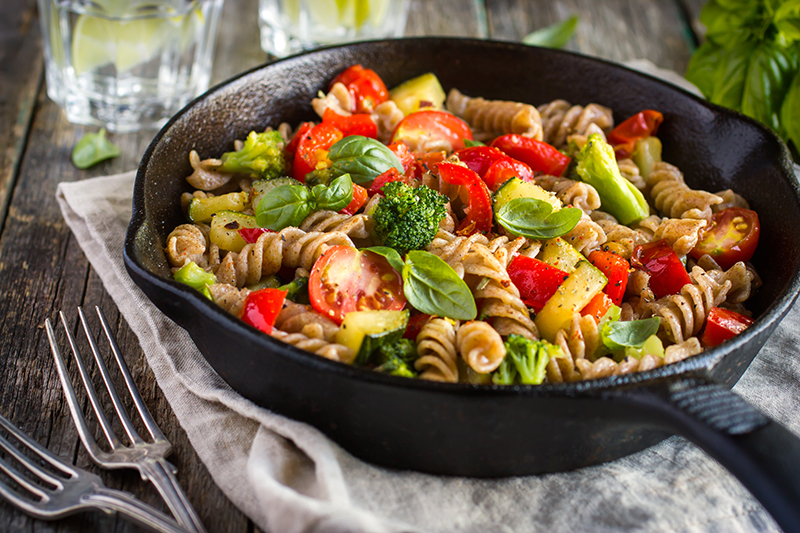
Welcome to Part 2 of our three-part series, ‘Toxins Lurking In Your Home’. Last month we focused on toxins found in skin care & hygiene products and some safer alternatives. This month we will focus on toxins found in the kitchen from pots & pans to what’s in your fridge.
1. Cookware: Some popular types of cookware have been known to contain carcinogens.
Toxins to Look For: Perfluorinated chemicals (PFCs), which can be found in cookware labeled ‘Teflon’ or ‘non-stick’.
Alternatives: Stainless steel and cast iron are great choices!
2. Dish Soaps & Detergents: Contain chemicals that can cause disruption with hormones & the endocrine system. Many conventional brands have also been known to carry carcinogens and byproducts from unreliable sources.
Toxins to Look For: benzyl acetate, sodium laureth sulfate (SLS), phosphates, triclosan, 1,4 Dioxane, fragrance, diethanolamine (DEA), monoethanolamine (MEA), triethanolamine (TEA), chlorine, formaldehyde, ammonia
Alternatives: Look for natural brands that avoid all of the above toxins, or search online for a DIY dish soap and/or detergent recipe using ingredients such as baking soda, citric acid, washing soda, and/or borax. Liquid castile soap is a great solution for dish soap.
3. Tap Water: Depending on the quality and chemical pollutants found it tap water, some tap water can cause neurological issues.
Toxins to Look For: Chlorine, fluoride, and various contaminates such as nitrogen, bleach, salts, pesticides, metals, etc.
What Can You Do:
– call your local water utility or find your city’s water utility report online
– buy a water filter for your home or purchase purified water
4. Foods:
Processed Foods: The heat, radiation, & pressure depletes our food of its nutritional content, which can then lead to issues for the digestive and immune systems, and eventually, other areas of the body.
Packaged Foods: This would include foods stored in plastics, cans, bottles, & even boxes. In order to hold a shelf life, these foods often contain toxic additives such as preservatives, artificial flavors, colors, and/or sweeteners, emulsifiers, anti-caking agents, anti-foaming agents, stabilizers, thickeners, anti-gelling agents, modified starches, etc.
Conventional Produce: Conventional fruits & vegetables often contain pesticides that can be harmful to the human body over an extended period of time. Certain foods contain higher loads of pesticides than others. Refer to the ‘Dirty Dozen’ and ‘Clean 15’ lists below.
GMO Foods (Genetically Modified Organisms): GMO foods are created using DNA that is foreign to a plant by injecting genes into them. These foods can cause digestive issues & damage to DNA, among other things.
Factory Farmed Animals: This would include animals being raised in small cages or confined spaces, animals being fed an unnatural diet, and animals being injected with antibiotics & hormones. What an animal eats affects their health, which will ultimately affect the health of us, the consumer.
What to Do:
– eat organic, non-GMO when possible (for produce, refer to the ‘Dirty Dozen’ list below)
– eat whole foods (the shorter the shelf life, the better)
– consume meats that are organic, non-GMO, grass fed, & free roaming
Dirty Dozen:
(buy organic, these foods contain the highest pesticide loads)
1. Apples
2. Peaches
3. Nectarines
4. Strawberries
5. Grapes
6. Celery
7. Spinach
8. Bell peppers
9. Cucumbers
10. Cherry tomatoes
11. Imported snap peas
12. Potatoes
Clean 15
(least likely to contain pesticides)
1. Avocados
2. Sweet corn
3. Pineapples
4. Cabbage
5. Frozen sweet peas
6. Onions
7. Asparagus
8. Mangoes
9. Papayas
10. Kiwis
11. Eggplant
12. Grapefruit
13. Cantaloupe
14. Cauliflower
15. Sweet potatoes